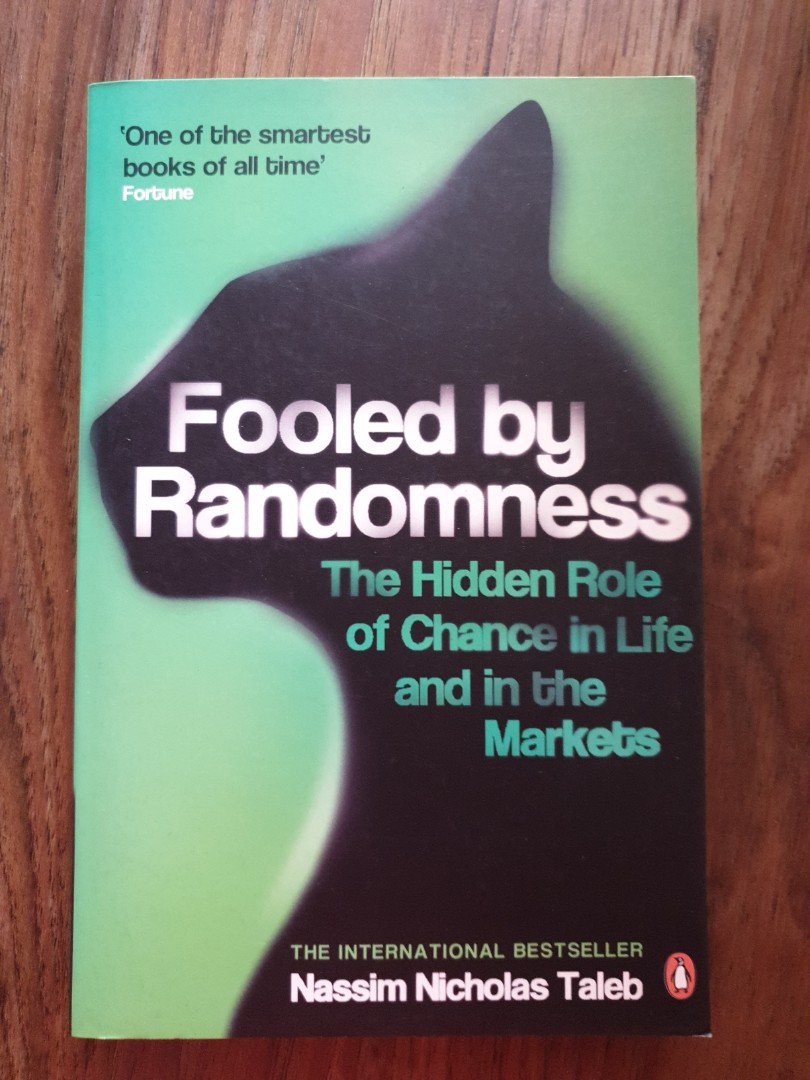His father, Franz Heinrich, was the New York Head of Schweizerischer Bankverein, which later merged into the famous Union Bank of Switzerland (UBS).
1/ There are a ton of books about Financial & Fundamental Analysis, Scuttlebutt and Technical Analysis. But there aren't many books 'taking risk'.
Among the few that exist, 'Zurich Axioms', written in 1985, is the best. Here are my key takeaways from the book.

His father, Franz Heinrich, was the New York Head of Schweizerischer Bankverein, which later merged into the famous Union Bank of Switzerland (UBS).
Max Gunter formalied these 'Axioms' by writing about them.
But remember, this is MY key takeaways from the book and not an exact summary. So you might find quotes, phrases and links inserted here and there by me (Not from the Author).
Risk-taking and worrying go hand-in-hand. If you're not worried about an investment, you're not taking risk.
Spend half your energy towards earning an income and the rest towards speculation.
— Jesse Livermore.

Bet big, but not so big that one unlucky turn can wipe you out. Also, betting too little would lead to mediocre returns.
Bet enough to make you worry about a loss, but in an opportunity whose potential gain would make you very happy.
Alright, back to it.
https://t.co/vzUSnjYgdr
1/ I re-tweeted a thread on the Kelly Criterion (I use this formula to make Capital Allocation decisions). While the thread is a good 101 on what the formula achieves, it says little about how to adapt it to investing. A thread on Capital Allocation.https://t.co/tGk1PcXcRr
— Dinesh Sairam (@Dinesh_Sairam) May 25, 2020
Putting your eggs in different baskets is fine. But it's not ideal if you have too many baskets to watch over. Diversification can reduce risk to an extent. But taken to an extreme, it can also reduce potential returns.
Greed will always make you 'wait for more' even if you've achieved considerable returns. Always take your profits once you have acheived your target returns or made considerable amount of money.
Don't press your luck.
Answer important questions like 'What do I want from this trade?', 'How much is enough?' and 'When will I sell?' before, not after entering a trade.
This makes exiting the trade so much easier.
Things go wrong eventually and many times over. Be willing to take a loss. The fear of regret, pain and the shame of admitting you're wrong will prevent you from doing this. Overcome them as quickly as possible.
Whether it's holding through a temporary loss on a gainful journey or exiting a bad trade permanently, learn to take the sting of a small loss. Expect them several times in your journey.
Small losses are the cost of big gains.
Human behaviour cannot be forecasted. Distrust anyone or anything claiming to do the same.
“It’s easy to a prophet. You make 25 predictions and the ones that come true are the ones you talk about.”
— Theodore Levitt (Economist).
'Get rich quick' or 'get rich easy' formulas don't exist and if they do, don't work. Luck plays a bigger role in our lives than any of us would admit. So ignore all ready-made investment formulas.
Minor Axiom #6: Future price movements cannot be predicted using past price movements (Might not be the favorite Axiom for many).
Minor Axiom #8: Beware the Gambler's Fallacy. Winning streaks or strokes of luck run out. The world isn't out to make you rich magically.
Minor Axiom #9 and #10 also go on to say: Don't latch on to an investment idea emotionally (Loyalty or nostalgia). Be willing to drop an investment idea in a heartbeat when a better one comes along.
A hunch is something you know, but you don't know how or why you know it. So dig deeper and find out. If there is substance, you can go ahead with it.
But Minor Axiom #11 warns, don't confuse a hunch with hope.
God isn't out to make you rich, neither is a supernatural evil bent on making you poor.
Minor Axiom #12 and #13 dismiss Astrology and Superstitions. The major point is that you shouldn't take financial decisions based on them.
Optimism means you expect the best to happen. Confidence means you're prepared to handle the worst. Know the difference.
Sucessful betting is all about being 'confident' and not merely 'optimistic'.
Disregard the opinions of experts, gurus, brokers, bankers and forecasters. In order to know something, you must analyze and understand it yourself.
As the Russian proverb goes, 'Doveryai, no proveryai' (Trust, but verify).
— The Royal Society's Motto.
This is one of my favorite quotes and it's also on my Twitter profile description. Very fitting when it comes to the world of investing.

This shoud have been a Major Axiom. The best time to buy something is when it's unpopular and vice versa while selling.
Basically 'buy low, sell high', but it's challenging to do it right.
"If at first you don't succeed, try again" might be a good idiom for life, but not so much when it comes to investing.
Minor Axiom #15: Never average down on a trade you're convinced is bad. Cut it short.
Long term plans have the drawback of ignoring the role of unexpected events on your outcomes. Make sure your process is right and you're ready to take decisions on time, but never settle on a single plan for life.
This Axiom warns against 'buy and hold' type of investments. The future it unexpected. So expect things to go wrong often. Be ready to react quickly when they do.
Don't assume investing for the long term takes out all risks.
If you liked this, then you will definitely like the original book. Find it, buy it, read it.
I also loved this look-back on the Book by Philip Ryland for the Investors' Chronicle in 2014. Perhaps you will too.
https://t.co/oAINAZTdoB
More from Dinesh Sairam
This thread is for investors or those who are interested in CDSL as an investment. Often the central reason quoted for an investment here is the gush of FCF the business produces and some float money also to boot. But this argument ignores a central problem as well. (1/11)
I completely agree that CDSL is a business that produces ample amount of Free Cash. So, it begs the question: "What are they doing with all that cash?" Generally, firms can utilize the cash on their books in 4 ways: Dividends, Acquisitions, Capex/Investments and Buybacks. (2/11)
CDSL does have a Dividend Payout Ratio of ~35-40%. But Dividends are the least efficient way of utilizing cash, due to the Triple Taxation on Dividends. More
Handled well, Inorganic Growth is so lucrative that some companies build their business models around acquisitions (Say, MSSL or Cyient). However, CDSL literally CAN'T be one such company. Read 7 (c) of the below regulatory document to know more:
https://t.co/071lwnnwJ4
(4/11)

CDSL can also reinvest cash into their own business, like most companies do. But CDSL (And most Exchanges) have little need for Capex/Reinvestment. CDSL's IPO came in at Rs. 523.99 Crores. Two years in, the Cash and Investments on their books stands at Rs. 650 Crores. (5/11)

I completely agree that CDSL is a business that produces ample amount of Free Cash. So, it begs the question: "What are they doing with all that cash?" Generally, firms can utilize the cash on their books in 4 ways: Dividends, Acquisitions, Capex/Investments and Buybacks. (2/11)
CDSL does have a Dividend Payout Ratio of ~35-40%. But Dividends are the least efficient way of utilizing cash, due to the Triple Taxation on Dividends. More
Handled well, Inorganic Growth is so lucrative that some companies build their business models around acquisitions (Say, MSSL or Cyient). However, CDSL literally CAN'T be one such company. Read 7 (c) of the below regulatory document to know more:
https://t.co/071lwnnwJ4
(4/11)

CDSL can also reinvest cash into their own business, like most companies do. But CDSL (And most Exchanges) have little need for Capex/Reinvestment. CDSL's IPO came in at Rs. 523.99 Crores. Two years in, the Cash and Investments on their books stands at Rs. 650 Crores. (5/11)

More from Books
You May Also Like
H was always unseen in S2NL :)
Those who exited at 1500 needed money. They can always come back near 969. Those who exited at 230 also needed money. They can come back near 95.
Those who sold L @ 660 can always come back at 360. Those who sold S last week can be back @ 301
Those who exited at 1500 needed money. They can always come back near 969. Those who exited at 230 also needed money. They can come back near 95.
Those who sold L @ 660 can always come back at 360. Those who sold S last week can be back @ 301
Sir, Log yahan.. 13 days patience nhi rakh sakte aur aap 2013 ki baat kar rahe ho. Even Aap Ready made portfolio banakar bhi de do to bhi wo 1 month me hi EXIT kar denge \U0001f602
— BhavinKhengarSuratGujarat (@IntradayWithBRK) September 19, 2021
Neuland 2700 se 1500 & Sequent 330 to 230 kya huwa.. 99% retailers/investors twitter par charcha n EXIT\U0001f602
































